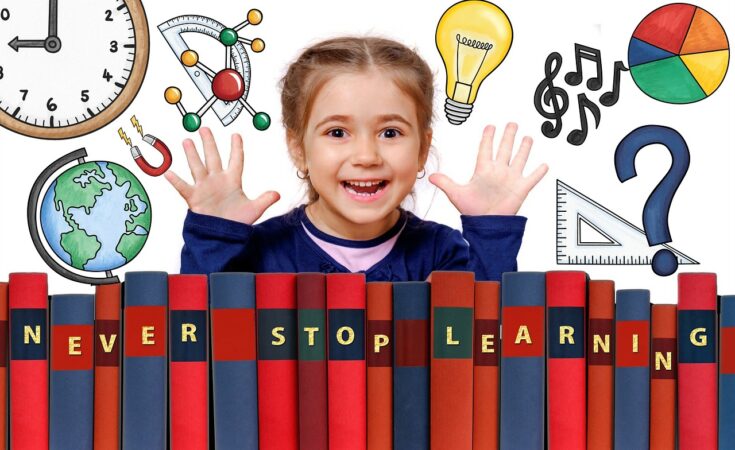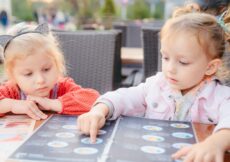
As a therapist and specialist in relational communication in private practice since 1999, I often see families in my office grappling with the challenges of modern parenting. Through my extensive experience, I have found that certain principles and practices of traditional education remain valuable and relevant. These time-tested methods provide a solid foundation to help children stay anchored in the present and reality. By revisiting these methods, we can create a balanced educational environment that combines tradition and modernity.
The Importance of Routines and Structure
One of the most notable aspects of traditional education is the emphasis on routines and structure. Daily routines provide children with a sense of security and predictability, which is essential for their emotional development.
Practical Example: Incorporating fixed schedules for meals, bedtime, and school activities helps children develop healthy habits and manage their time better. Knowing what to expect allows them to focus on their tasks and feel more in control of their environment.
In my practice, I see how children thrive when they have a structured routine. Parents often report improvements in their children’s behavior and emotional stability when consistent routines are established.
The Value of Responsibility and Autonomy
Traditional education often emphasizes the importance of responsibility and autonomy. Assigning age-appropriate responsibilities, such as household chores or managing their school schedule, fosters independence and self-confidence in children.
Practical Example: Regularly assigning chores, such as setting the table or tidying their room, teaches children to contribute to the family’s well-being and develop a sense of duty. These small responsibilities enhance their sense of competence and prepare them for more complex tasks as they grow.
As an expert in relational communication, I observe that children who are given responsibilities tend to exhibit higher levels of self-esteem and problem-solving skills.
Respect for Rules and Limits
Clear and consistent rules are a cornerstone of traditional education. They provide a framework within which children can learn what is expected of them and the consequences of their actions. Respect for rules helps children understand boundaries and develop appropriate social behavior.
Practical Example: Establishing family rules about respecting others, politeness, and technology use helps children understand limits and develop respectful behavior. When rules are applied consistently, children learn to accept the consequences of their actions, thereby reinforcing their sense of responsibility.
In my experience, families who implement clear and consistent rules tend to have children who are more disciplined and respectful, both at home and in social settings.
Learning Through Direct Experience
Traditional education values learning through direct experience and observation. By encouraging children to actively participate in practical activities and observe adults in their daily tasks, they acquire essential skills and a concrete understanding of the world around them.
Practical Example: Involving children in cooking, gardening, or DIY projects allows them to develop practical skills and foster their natural curiosity. These direct experiences are often more memorable and formative than theoretical lessons alone.
I often advise parents to engage their children in hands-on activities. I see how these experiences help children develop critical thinking skills and a stronger connection to their environment.
Communication and Intergenerational Relationships
Intergenerational relationships are another valuable aspect of traditional education. Regular interactions with grandparents and other extended family members enrich children’s perspectives and strengthen their sense of belonging to a community.
Practical Example: Encouraging children to spend time with their grandparents or participate in family gatherings allows them to benefit from the experience and wisdom of older generations. These intergenerational exchanges can also reinforce family and cultural values.
In my practice, I frequently observe the positive impact of strong intergenerational relationships on children’s emotional and social development.
The Importance of Free Play and Nature
Traditional education also recognizes the importance of free play and contact with nature. These elements are essential for children’s physical, emotional, and social development.
Practical Example: Encouraging children to play outside, explore nature, and engage in unstructured play stimulates their creativity, problem-solving abilities, and overall well-being. Free play provides a healthy balance to more structured and academic activities.
As a therapist, I notice that children who have ample opportunities for free play and time in nature tend to be more creative, resilient, and emotionally balanced.
Conclusion
In conclusion, by reintegrating certain principles of traditional education into our contemporary practices, we can offer children a solid grounding in the present and reality. Routines, responsibility, respect for rules, learning through direct experience, intergenerational relationships, and free play are timeless values that promote balanced and resilient development. Combining these traditional elements with modern knowledge and methods, we can create a rich and comprehensive educational environment, preparing children to successfully navigate the complex and changing world of today.


































